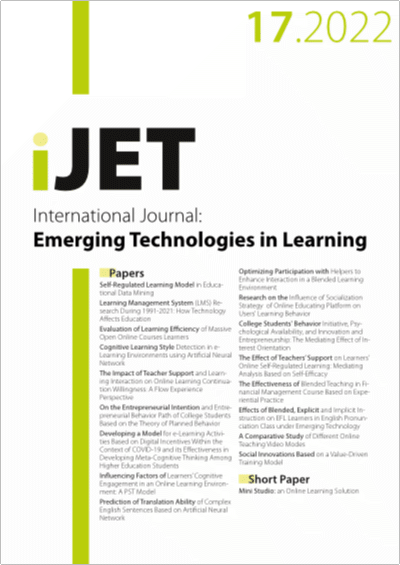The Effectiveness of Blended Teaching in Financial Management Course Based on Experiential Practice
DOI:
https://doi.org/10.3991/ijet.v17i17.34169Keywords:
experiential practice, financial management, blended teaching, effectiveness, Support Vector Machine (SVM), transfer learningAbstract
Adopting blended teaching in financial management course based on experiential practice is conductive to the exploration of new learning methods of the said course, so that students could have a deeper understanding of the financial management knowledge, and the teaching effect of the course could be better. This paper targets at studying the effectiveness of blended teaching in financial management course based on experiential practice. At first, influencing factors of the effectiveness of blended teaching in the said course were analyzed, and the evaluation flow was given. Then, based on the Least Squares Support Vector Machine (LSSVM), this paper built a prediction model for the evaluation of the effectiveness of blended teaching in financial management course, and constructed a Transfer Learning SVM (TL-SVM) for formulating similar teaching design schemes based on federated learning, and used it to finish the learning of the similar implementation laws of multi-type teaching design schemes and the special implementation features of each single teaching design scheme. The proposed method can well cope with small sample size cases in which the evaluation data of the effectiveness of some teaching design schemes are limited, and the validity of the model was verified via experimental results.
Downloads
Published
How to Cite
Issue
Section
License
Copyright (c) 2022 Nan Zhang (Submitter); Yujie Zhang, Chunyan Pei, Bing Dai, Na Wang

This work is licensed under a Creative Commons Attribution 4.0 International License.



